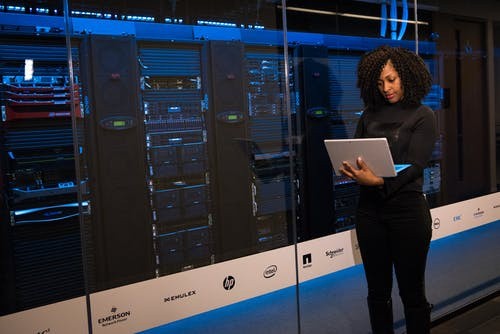
Cybersecurity is a necessity: each company and individual users should protect their internet-connected devices. Hackers keep coming up with new ways to breach data defenses and steal sensitive information. And this year, the number of data breaches has increased drastically.
According to a report, an alarming number of hacks and breaches occurred in 2020. While not all of them are related to the COVID-19 pandemic, the pandemic has, in a way, worked in favor of hackers. They were inspired to craft new scams and deliver even more cold-blooded attacks, even against hospitals.
One of the notable data breaches concerns the video-conferencing app Zoom. Zoom exploded when the pandemic started and forced most businesses to allow remote work. Hackers used that to their advantage and stole over 500,000 Zoom login credentials. To avoid suffering the same fate as those businesses, make sure you take all the following steps. Each user should practice safe browsing tips, avoid unnecessary downloads, and stay away from malicious emails.
Regularly Conduct Security Awareness Training
Your security chain is as strong as your weakest link. If a single employee doesn't follow strict security measures, they could easily open the door for hackers. So, educate your employees on cybersecurity threats through regular security awareness training. Make sure they know how to keep data safe and secure at all times. That's especially important if you have a BYOD policy. And it's an absolute no-brainer if you have remote workers who regularly connect to your corporate network.
Frequently Update All Your Software
Sometimes, software updates only tackle design or functionality issues. However, in the majority of cases, they provide security patches that address the latest vulnerabilities. Unless you regularly patch all your apps with the latest security updates, you risk experiencing a data breach. To avoid such problems, make sure all the updates are automatic.
Use a Password Manager
The leading cause of data breaches is weak passwords, especially during this unexpected remote-work era. People know that, and they still use passwords that are ridiculously easy to crack. Don't be an easy target. Come up with strong passwords that no one would be able to guess. That means no personal information, such as names, birthdays, addresses, or childhood pets. And absolutely no passwords such as "123456" or similar.
Your best bet is a password manager. It protects all your passwords and keeps them in a secure vault. You only need one master password to log into your connected accounts. One of the best features of such software or service is that it can generate random combinations. Such passwords will be nearly impossible to crack, and you won't need to remember them. All of these credentials will be accessible via your password manager.
Limit Data Access with User Permissions
It's risky to let all your employees have access to your critical business data. Even with proper security awareness training, someone could fall victim to a phishing attack. So, prevent this by enforcing user permissions for all your data. Limit access to certain files and documents only to employees who truly need to access them.
Ban the Use of Removable Media
USB flash drives and other removable media can be very dangerous to your data security. What if an employee clicks on a phishing link on a personal device, where they've inserted a USB flash drive? That flash drive could have malware, so you wouldn't want it to infect your entire corporate network.
So, banning all removable media in the workplace is one of the best things you can do for data security. If USB tools are important for your company, you can assign corporate gadgets to your employees and avoid using them for personal matters. However, focusing on other options is a better alternative.
Protect Your Data with a VPN
A Virtual Private Network (VPN) will traverse your internet activities through an encrypted tunnel. No one outside of that tunnel will be able to see you online, let alone steal data in transit. Potential hackers won't be able to target you for their criminal gain. For instance, AtlasVPN your IP address, displaying an IP address of the server you're connected to. As a result, it seems as if you were physically in the location of that remote server.
That's also perfect if you have remote employees. No matter where they are, you can make sure their connections are safe and secure through your VPN. VPNs encrypt all internet connections - even on public Wi-Fi. Need to work while traveling but don't have a secure roaming data plan? Simply connect to your VPN and securely use any free Wi-Fi at your disposal. Your data will be as safe as if you were accessing it back in the office.
Protecting your sensitive data is crucial for the success and reputation of your business. So, don't underestimate the power of proper security measures. Start following all these steps as soon as possible, and you'll keep potential hackers at bay.
© 2026 HNGN, All rights reserved. Do not reproduce without permission.








